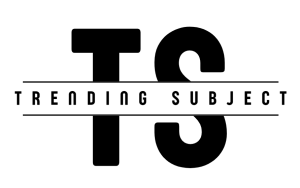A major lawsuit has brought Facebook and Netflix into the legal spotlight as they face allegations of compromising user privacy for their own gain. The plaintiffs, Maximilian Klein and Sarah Grabert have lodged serious claims against the two media giants that could potentially tarnish their reputations and damage their businesses.
According to the legal action, Facebook allowed Netflix to access private messages sent between users on the platform. The alleged breach of privacy has raised significant concerns among privacy advocates and has touched upon the issues of competition and data sharing.
The lawsuit presents a complex web of interactions between the two companies, focused on data exchange. It claims that for almost a decade, Facebook and Netflix had a special relationship, with Netflix purchasing hundreds of millions of dollars in ads on the Facebook platform. This relationship was primarily facilitated by former Netflix CEO, Reed Hastings, who also served on Facebook’s board of directors during this time.
One of the most alarming allegations in the lawsuit is that Facebook provided Netflix with access to users’ private messages through a special agreement known as the “Inbox API”. This allowed Netflix to analyze user behavior and interactions on the platform. The agreement also required Netflix to provide a written report to Facebook every two weeks, detailing the daily counts of recommendation sends and recipient clicks by interface, initiation surface, and implementation variant.
The documents also reveal the direct involvement of high-level executives from both companies in fostering this close relationship. This included personal communications between Hastings and Facebook’s leadership, including CEO Mark Zuckerberg. It is also alleged that by February 2015, Netflix was spending $40 million per year on Facebook advertising and was seeking a “custom deal” that would restrict Facebook’s use of its data for targeting purposes.
Another significant claim in the lawsuit is that Facebook purposely sabotaged its own streaming service, Facebook Watch, to protect Netflix’s dominance in the industry. This accusation, if proven true, could have serious implications for how Big Tech companies handle their competition.
The crux of the plaintiff’s argument is that Facebook and Netflix violated user privacy and potentially engaged in anti-competitive behavior. If the allegations are found to be true, it would mean that both companies used their positions of power and influence to exploit user data for their own gains, without the users’ knowledge or consent.
In response to the lawsuit, both Facebook and Netflix have denied the allegations and have vowed to fight the claims in court. However, the lawsuit could have far-reaching implications for user data and privacy on Big Tech platforms, as well as the competition between companies in the tech industry.
As the legal battle between these two media giants unfolds, it raises questions about the responsibility of companies to protect user data and the fragility of consumer privacy in the digital age. The outcome of this lawsuit could set a precedent for how companies handle user data and further shape the regulations and laws surrounding data privacy.
This news has sparked concern and outrage among users of social media and streaming platforms, as it exposes the potential misuse and exploitation of their personal information. It also highlights the need for greater transparency and accountability from tech companies in their handling of user data.








